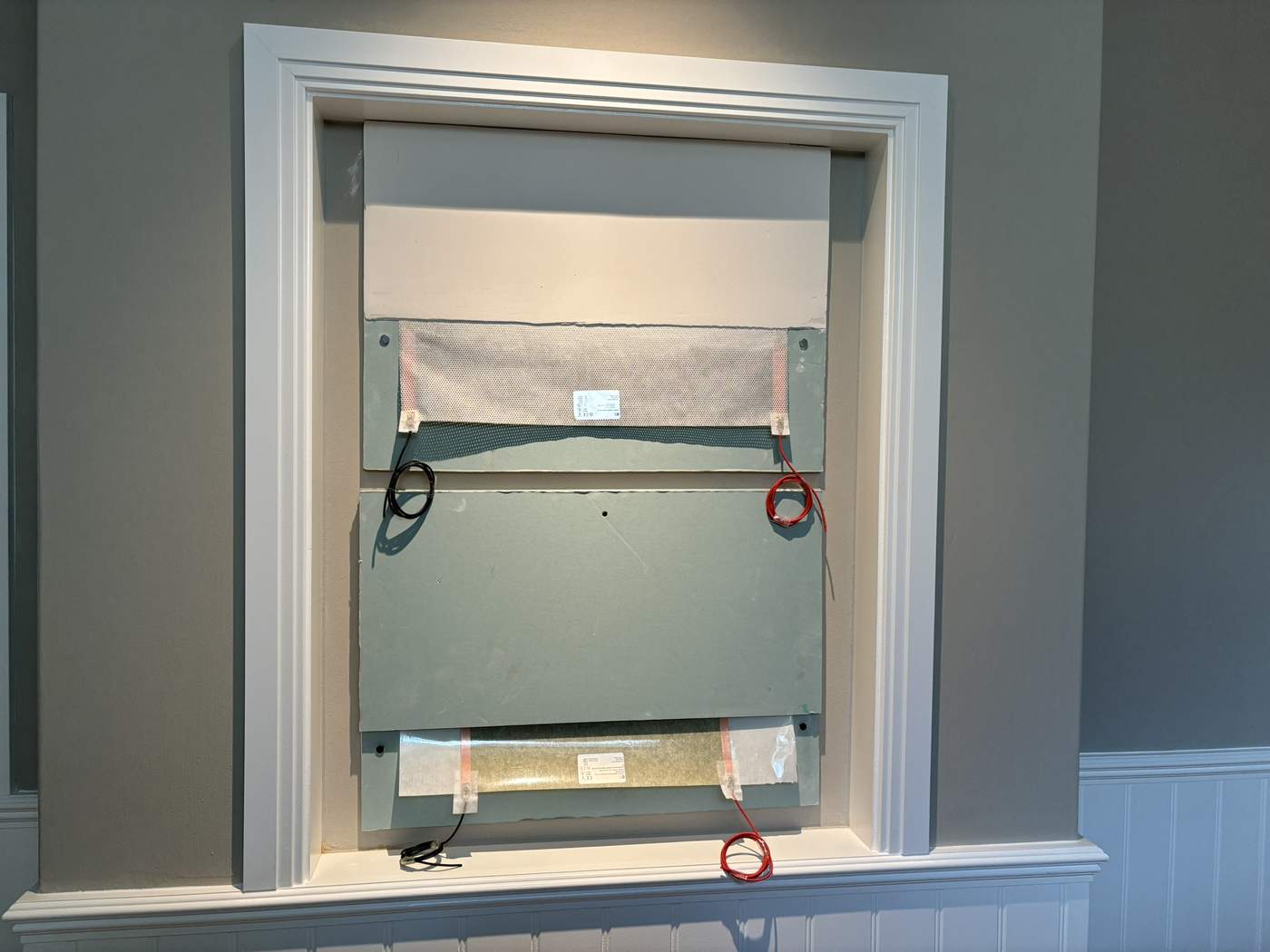
6. Heating Options for Homes Without Gas
If your home doesn’t have a gas line running to it, or you’re facing issues with your gas supply, there are various alternatives to heat your home you can consider. Heating options without gas mostly rely on electricity and alternative fuel sources. Some of them can be cheaper than gas heating, while others can cost significantly more.
What are the alternative heating options to gas?
1. Electric Radiant Heating

Electric radiant heating systems offer an efficient solution for homes without gas heating. Designed for easy installation behind drywall, these systems feature a low-voltage heating element that provides consistent warmth by radiating heat from walls and ceilings. This technology ensures rapid temperature control and minimizes energy waste, making it a modern and sustainable choice for residential heating. With their high degree of prefabrication, electric radiant heating systems can be seamlessly integrated into your home, enhancing comfort without the complications of traditional heating methods.
2. Electric heater

A good electric heater can easily keep a room warm, but it draws a lot of power. This option is recommended when no alternatives are available. One of the main benefits of electric space heaters is that they are widely available in different configurations and are very simple to use. Keep in mind that running several in parallel can add a lot to your electricity bill very quickly.
3. Underfloor heating

Another viable option is electric or water underfloor heating. Although it requires some rework of your existing property, this is especially true when you want to use water underfloor heating.
It’s always recommended to work with an expert for the installation and maintenance of underfloor heating; otherwise, you risk running into problems down the line, some of which may even compromise the safety of your home.
4. Wood stove
A wood stove is something you should already have installed. If your home doesn’t have one, installing a new one can get very expensive, especially when you consider venting. This is also something that must be done by a professional at all costs. In some areas, you may even be prohibited from installing your own wood stove.
Always check your local regulations before proceeding with this type of modification if you’re intent on using a wood stove to heat your home. Don’t be cheap when it comes to hiring a professional either, as spending a bit more on this can go a long way towards overall quality and safety.
5. Oil heater

Oil heaters are a good alternative to gas heating. They come in various shapes and sizes, including portable models that you can easily carry around the home with you. Contrary to what some people believe, oil heaters don’t always need to be used outdoors. Some models are designed for indoor use, but you have to make sure that you’re buying a model that supports this.
6. Infrared heater
Infrared heaters are technically a variant of electric heaters, though they come with some additional advantages. For example, they are great at warming up people in a targeted area without affecting any of the surrounding furniture or other sensitive items. Unfortunately, infrared heaters also tend to be more expensive due to the advanced components typically used in them.

| Heating Type | Pros | Cons |
|---|---|---|
| Electric Radiant Heating | Efficient, low-energy consumption, easy to install | Initial installation costs, requires rework of walls |
| Electric heater | Wide range of models, Easy installation and use | Expensive to run, especially with multiple heaters |
| Underfloor heating | Efficient, warms the whole home or specific areas | Expensive and difficult to install |
| Wood stove | Low running cost, Efficient heating | Requires venting, unpleasant smell |
| Oil heater | Low cost, Fast operation | Not adequate for heating larger spaces |
| Infrared heater | Advanced heating that covers a wide area, Portable | Expensive |
Clara Annesley
Clara Annesley is an interior design and construction content writer. She holds a BSc (Hons) in Architectural Design Technology from the University of West London. Clara specialises in residential construction for topics like health & safety, architectural design and writing cost guides for renovation and remodelling projects.